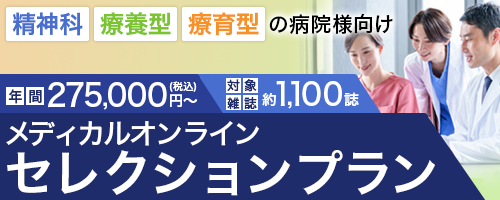アブストラクト
Japanese
| Title | IgG4関連涙腺炎の再燃とともに腫瘤形成性膵炎を生じた一例 |
|---|---|
| Subtitle | 症例 |
| Authors | 茂又章徳, 有賀啓之, 熊倉有里, 鹿志村純也 |
| Authors (kana) | |
| Organization | 筑波大学附属病院水戸地域医療教育センター水戸協同病院 消化器内科 |
| Journal | Progress of Digestive Endoscopy(2001年から) |
| Volume | 94 |
| Number | 1 |
| Page | 147-148 |
| Year/Month | 2019 / |
| Article | 報告 |
| Publisher | 日本消化器内視鏡学会関東支部会 |
| Abstract | 「はじめに」 自己免疫性膵炎は本邦より発信された疾患概念で, 多彩な膵外病変を合併するIgG4関連疾患の膵病変としても注目されている. 今回, 涙腺炎の再燃に伴い自己免疫性膵炎を発症した症例を経験したので報告する. 「症例」 患者: 42歳男性. 主訴: 腹痛. 既往歴: 35歳時, 涙腺腫大に対して手術やステロイド使用歴あり. 他, 慢性副鼻腔炎, 気管支喘息. 生活歴: 飲酒ビール350ml. 喫煙なし. 現病歴: X-3日, 心窩部痛と頭痛が出現. 翌日近医を受診し, 内服治療を受けたが症状改善せず, X日当院を受診した. 受診時には左季肋部痛も伴っていた. |
| Practice | 臨床医学:内科系 |
| Keywords | 自己免疫性膵炎, IgG4関連疾患 |
English
| Title | A case of tumor-forming pancreatitis with recurrence of IgG4-related dacryoadenitis |
|---|---|
| Subtitle | |
| Authors | Akinori Momata, Hiroyuki Ariga, Yuri Kumakura, Junya Kashimura |
| Authors (kana) | |
| Organization | Department of Gastroenterology, Mito Kyodo General Hospital |
| Journal | Progress of Digestive Endoscopy |
| Volume | 94 |
| Number | 1 |
| Page | 147-148 |
| Year/Month | 2019 / |
| Article | Report |
| Publisher | Japan Gastroenterological Endoscopy Society Kanto Chapter |
| Abstract | A 42 year-old man had a chief complaint of abdominal pain lasting for a few days. His medical record comprised lacrimal gland enlargement, surgery, and PSL. He also had lacrimal gland enlargement on admission. Blood test revealed elevated IgG and IgG4 levels of 2,119 and 1,060 mg/dl, respectively. Other parameters were normal. Abdominal computed tomography revealed a 20-mm tumor within the pancreatic body, and endoscopic retrograde cholangiopancreatography revealed irregular narrowing of the main pancreatic duct. Our diagnosis was autoimmune pancreatitis (AIP) based on Clinical Diagnostic Criteria for Autoimmune Pancreatitis 2011. Corticosteroid, the standard AIP therapy, was administered to the patient, resulting in IgG4 elevation and gland enlargement improved. AIP is characterized by enlarged pancreas and irregular narrowing of the main pancreatic duct. The condition is often complicated by IgG4-related sclerosing cholangitis, dacryoadenitis, and other diseases. Many issues related to the indications of bile duct drainage and use of immunomodulating drugs remain unaddressed for better AIP diagnoses. Whole-body evaluation is vital when an IgG4-related disease is suspected. |
| Practice | Clinical internal medicine |
| Keywords |
- 全文ダウンロード: 従量制、基本料金制の方共に121円(税込) です。
参考文献
- 1) 日本膵臓学会・厚生労働省難治性膵疾患に関する調査研究班:自己免疫性膵炎診療ガイドライン2013.膵臓 28:715-784, 2013
- 2) 菅野敦,正宗淳,下瀬川徹:自己免疫性膵炎の全国調査.膵臓 30:54-61, 2015
- 3) 李倫學,伊藤鉄英,植田圭二郎,他:治療方法up to date特に再燃例の治療法,免疫調節薬とリツキシマブを含めて.膵臓 30:85-93, 2015
- 4) Masamune A, Nishimori I, Kikuta K, et al:Randomised controlled trial of long-term maintenance corticosteroid therapy in patients with autoimmune pancreatitis. Gut 66:487-494, 2016



